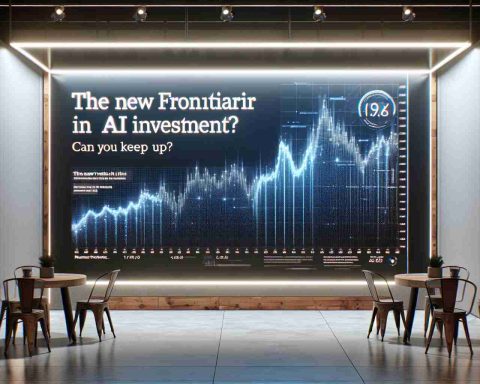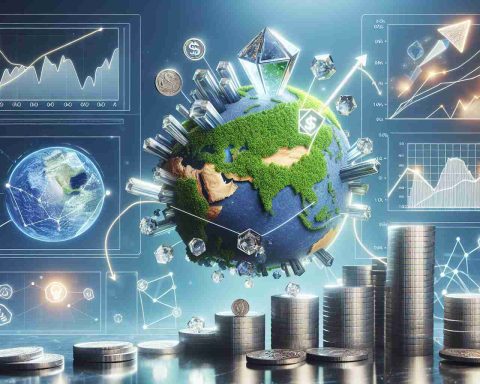Most people have a love-hate relationship with AI. They might hate how it has corrupted the digital art industry with six-fingered humans, but love how it can make finding new movies and music much more seamless. A lot of the time, people don’t even know AI is being employed and working behind the scenes. From keeping your financial information secure to showing you how to get to work using the fastest route, these innovations wouldn’t be possible without machine learning and AI algorithms.
And the reality is that AI is set to change the world in more ways than it already has. As wild a ride as our imaginations take us, it seems like AI is fully equipped to make those visions happen. Maybe we’ll have personal assistants to do and find all sorts of things for us, like Bonus Buy slots to play, or we’ll have an AI-powered pantry that tells us when we’re low on eggs.
AI is inherently an evolving and learning technology, improving itself as it processes more datasets and interacts with the world around it. So, what can we expect AI to do by 2030?
Personalize and Refine Healthcare
One of the most valuable sectors that AI contributes to is healthcare. With human life, death, healing, and well-being all hinging on the activities within it, AI’s role isn’t just one of convenience—it can change the outcome of a treatment plan entirely. It has already helped with aspects like drug discovery, healthcare accessibility, remote monitoring, operational efficiency, and diagnostic accuracy, but the opportunities are boundless.
With healthcare spending and demand only increasing, AI needs to step in to help the industry keep up. We can see artificial intelligence play a bigger role in speeding up and refining the entire healthcare journey for patients and medical professionals, from being checked into a clinic to getting the most accurate diagnosis and receiving a top-notch, personalized plan for recovery and optimization. Other than tackling the low-hanging fruit of administrative tasks, AI will find an increasing role in imaging applications, home-based care, and clinical decision support to see how we can better deliver care.
Enhance Urban Planning
Although urban planning requires a human touch to infuse vibrancy and cultural nuances into our communities, the efficiency and analytical power of AI far surpasses anything that people can do. Like in healthcare, AI has already been used in key aspects of urban planning, such as simulation and environmental impact assessments, as well as to tackle traffic and the urban heat island effect to plan green spaces. As more and more people flock to urban cities to seek out opportunities and better facilities, there’s a dire need for smarter city planning to accommodate this demand. Back in 2018, the United Nations had already projected that 68% of the world’s population would live in urban areas by 2050. In addition, we’re seeing floods, forest fires, and other natural disasters that exacerbate the challenges in our cities.
At this rate, concepts and traditional methods aren’t good enough. AI will be a major player in developing detailed blueprints and strategies for sustainable urban planning, particularly through one-upping modern procedural modelling tools. AI can learn from cities known for top-notch urban planning and high standards of living and learn the best practices so they can be applied to new infrastructure. It can also improve upon other testing and simulation tactics by fostering better-planned developments, whether it has to do with public transit optimization or improved land use.
Improve Security and Privacy
Another big benefit of AI that is often overshadowed by conversations about big data and automation is proactiveness. In the realm of physical and digital security and privacy, keeping us, our information, and our assets safe from threats is a must. As AI can effectively anticipate any potential security flaws, check for anomalies in patterns, and provide real-time alerts, it can safeguard us from more detrimental incidents before they happen. But as time goes on, these threats evolve to become more sophisticated.
Devices other than our tablets and phones will likely employ enhanced authentication methods like biometric identification, and automated systems will be able to both detect and destroy any threats without us having to intervene. We can predict that security and privacy measures will become more reliable and require much less human intervention. While we continue to rely more on technology to conduct our daily lives, AI will ensure that privacy and security aren’t an afterthought.
Boost Sustainability and Green Initiatives
Society has pushed sustainability for decades, but it’s only become more urgent and pressing throughout the years as we’ve watched our world change firsthand. Businesses began adopting green initiatives and making corporate social responsibility a mainstay in the 2000s, while the UN made it a mainstream concern in the 2010s with the 2030 Agenda for Sustainable Development.
Today, many of us are doing everything we can to make a conscious effort towards going green. On a broader scale, however, AI can handle the heavy lifting by optimizing energy efficiency beyond merely controlling the lights and thermostat by balancing energy supply and demand and making waste management a much more refined process. With the help of AI, we can better manage our often limited natural resources and optimize our agricultural practices to foster a more resilient system. Sustainability practices often go deeper and further than “reduce, reuse, and recycle,” which is why they deserve advanced AI technologies to address each and every facet.
















